By Hussain Wahab
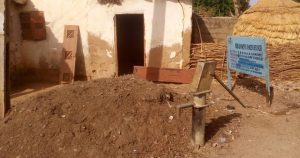
It is May, and, in a community somewhere in the world, the sun is shining brightly, and the temperature is hot. The skins of residents are very dry as if they do not have access to the life-saving substance known as water. This is Mugadi Gari in Koko Besse/Maiyama Federal Constituency of Kebbi State, Nigeria.
For decades, the people of Mugadi Koko have been crying for potable water. To them, they would prefer every season to be rainy. They risk contracting waterborne diseases from the unhealthy water sources where children swim, nomads wash, and animals deep their mouths. This has been how the community has gotten their water over the years.
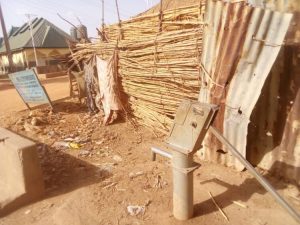
Ismaila Mugadi, a man in his 50s, like many others in the two communities, was very happy when the news of drilling a borehole in Mugadi 1 and Mugadi 2 filtered into his ears. He believed that the boreholes would help the community with the prevailing water scarcity in the area and that the long-term recurring water difficulties had ended. Never had he envisaged what would come afterwards.
‘’We were very happy when the borehole water was commissioned. We thought we could now use the energy of getting water for another thing,” recounted Alhaji Ismaila.However, the boreholes stopped working a day after commissioning.
This left the people of Mugadi 1 and 2 in frustration as they continued their daily struggle for water. They are now powerless in the face of the water challenge. The water project site has now turned into a dumpsite.
“The two boreholes in Mugadi Garri are all spoiled, and people are very seriously in need of water due to the current electricity situation in the community. There is no electricity, and there is no way we can have access to water,” Mr Mugadi explained with disappointment in his voice.
Lifesaving liquid
According to the World Health Organisation, contaminated water and poor sanitation are linked to the transmission of diseases such as cholera, diarrhoea, dysentery, Hepatitis A, typhoid, polio and others. The statistics show that 290,000 people die annually from diarrhoea, and unhealthy water exposes individuals to preventable health risks.
Research shows that over 70% of households in rural communities do not have access to improved water supply. Most of these people depend on free sources of water, which are not free from animals’ usage and faeces for survival. These are rivers, streams, water ponds and unprotected wells susceptible to waterborne diseases: typhoid, fever, cholera, dysentery, malaria parasites and others.
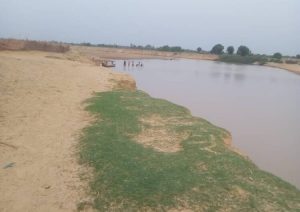
The people of Mugadi Gari are one of the 1.42 billion people, including 450 million children, that the United Nations Children’s Fund (UNICEF) reported living in extremely high-water vulnerability areas. This is contained in a press release: “One in five children globally does not have enough water to meet their everyday needs.”
Meanwhile, Bala Sokoto, from the Health Service Department, Usmanu Danfodiyo University Sokoto, says, “Unhygienic water can cause a lot of diseases which include diarrhoea and cholera.”
While emphasizing the importance of good hygiene, he explained that ‘’waterborne diseases can also cause typhoid fever, hepatitis, abdominal cramps, dysentery and giardiasis which can lead to critical health conditions and may even result in death’’.
Frustration heightens
Just like Alhaji Ismaila Mugadi, a resident who prayed for anonymity for fear of intimidation, said the two boreholes in Mugadi 1 and Mugadi 2 are inactive. He requested that the facilitator of the boreholes come to the community or send a delegate to see what is on the ground.
‘’They are not functioning. Those that commissioned them just projected them to get their money. They were not standard from the very day they were commissioned, and they stopped working. It was only the day they were commissioned people used them; after that, it stopped working,” he said.
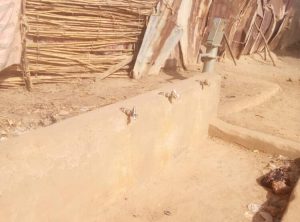
According to tracka and the signpost in the project location, the project was sponsored by Honourable Shehu Muhammad Koko, the lawmaker who represented Koko Besse/Maiyama Federal Constituency in the 9th assembly and awarded to Sokoto Rima River Basin Development Authority (SRRBDA) for N50 million.
UDEME discovered that two of the four hand boreholes drilled in Mugadi 1 and 2 are not serving their purpose as they turn into dumpsites.
When UDEME reached out to the lawmaker in June, he told this reporter that ‘’he was only concerned with the zonal intervention project and not the capital project’’.
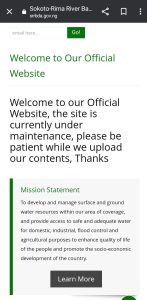
He did not respond to further enquiries on the status of the project.
‘I only facilitated zonal intervention projects, mostly solar and not capital projects. You are to ask the government for a capital project. You can check out the communities in the evening; you will see street lights working almost everywhere,’’ he said, sidestepping the enquiries.

Distressed community
Every day, community residents now struggle for access to water. They have to trek for miles searching for water. In the middle of the community, a hand borehole close to a straw house stands lifeless. It is jam-packed with waste.
Usman Ladan Mungadi, a man in his 40s, buried his head as he narrated the ordeal of the people in the community– ‘’how women will work around the clock, backing children as they look for water. This always delays them’’.
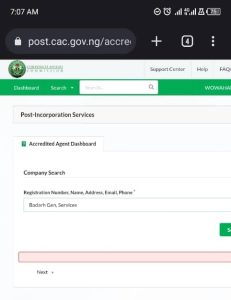
“The distance between Mungadi Gari 1 to the river is about 500 meters, and that of Mungadi Gari 2 to the stream is 1000 meters,” Mr Mungadi says.
A visit to the stream by the reporter confirms what Mr Mungadi said. The reporter sights a group of children swimming in the river.
As of the time of filing this report, all attempts to reach out to the contractor proved abortive. Also, the company could not be found on the Corporate Affairs Commission (CAC) website. The company’s listed website was said to be under maintenance. The contact number on it was picked by a lady which a CallerApp identified as Omobolale Adedoyin. When the reporter tried to inquire, she said ‘’it was a wrong number.’’
This report was produced under the Udeme project of the Centre for Journalism Innovation and Development (CJID).
